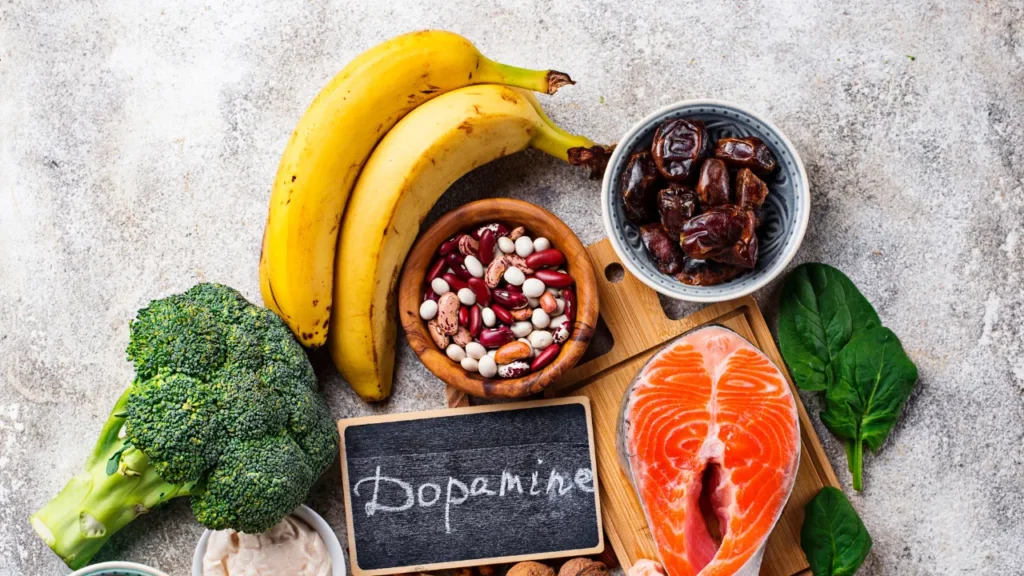Nootropic supplements have been increasingly popular in recent years among those looking to improve their cognitive function, alertness, and focus. Uridine is one such supplement that has attracted interest. A nucleoside, uridine is a part of the body’s pool of nucleotides and an essential component of RNA. It is involved in many physiological processes in the body and is necessary for the synthesis of RNA. The nature, health advantages, recommended dosage, side effects, possible drug interactions, and other pertinent details about the most responsible usage of uridine will all be covered in this article.
You May Also Like:
CBD for Concentration: 3 Epic Benefits that Boost Your Focus
CBD for Concentration: The Productivity Hack for Energy and Focus
Uridine: Benefits, Dosage, Side Effects, Drug Interactions, And Other Important Information is an original (NootropicsPlanet) article.
Nature of Uridine
Organ meats, broccoli, tomatoes, mushrooms, beer, and other foods contain uridine, a naturally occurring nucleoside. Additionally, it is a part of RNA, which produces proteins in the body. Creating phospholipids and other elements of cell membranes requires the molecule cytidine triphosphate (CTP) made from uridine.
Health Benefits of Uridine
Due to its involvement in several physiological processes, uridine provides several health advantages. The following are a few of uridine’s health advantages:
- Improves cognitive function: In animal models, uridine has been proven to enhance learning, memory, and cognitive function. In a rat study, uridine improved long-term potentiation, which is crucial for memory and learning.
- Promotes brain health: Uridine has neuroprotective properties and may help prevent cognitive loss caused by aging. It has been demonstrated to boost the production of brain-derived neurotrophic factor (BDNF), a protein essential for the survival and functionality of neurons.
- Uridine has anti-inflammatory characteristics and might help reduce inflammation in the body. Numerous illnesses, including arthritis, cancer, and heart disease, are associated with chronic inflammation.
- Enhances mood: Research on animal models has shown that uridine has effects similar to those of antidepressants. Raising dopamine and serotonin levels, two neurotransmitters important for controlling mood, may aid in mood improvement.

Chemistry of Uridine
A pyrimidine base, uracil, is joined to a ribose sugar molecule by a -N1-glycosidic bond to form the nucleoside known as uridine. Uranium is a nitrogen-containing heterocyclic aromatic molecule with two oxygen atoms and four carbon atoms arranged in a ring that serves as the pyrimidine base. The synthesis of nucleic acids depends on the five-carbon monosaccharide ribose sugar, which is present in RNA. The uracil base and the ribose sugar molecule are connected by a covalent linkage called the -N1-glycosidic bond.
The de novo synthesis process, or the salvage pathway, recycles nucleotides and produces uridine in the body. Uridine monophosphate (UMP) is created via the de novo synthesis route from precursors, including amino acids and bicarbonate. The resultant UMP can then be transformed into UTP and other nucleotides. Nucleotides are recycled through the salvage pathway by being broken down into their component elements, including uridine. The de novo synthesis route can then be used to reassemble the uridine into fresh nucleotides.
Uridine is found in numerous foods, such as liver, mushrooms, broccoli, and beer. It is also offered as a nutritional supplement in capsules, pills, and powder.
Physiological Mechanisms of Action
There are multiple physiological processes by which uridine works to promote human health. The following are some of the ways uridine functions in the body:
- Uridine is a precursor for synthesizing RNA, which is necessary for the body to produce proteins.
- Promotes the production of phospholipids: Uridine is a precursor to CTP, which is necessary for producing phospholipids and other elements of cell membranes. Phospholipids are also required for the maintenance of cell membrane function and structure.
- Uridine has been proven to stimulate the synthesis of the neurotransmitters dopamine and acetylcholine, which control mood, motivation, and cognitive performance.
- Enhances neurotrophic factor production: Uridine enhances the production of BDNF, a protein essential for the survival and operation of neurons. The development and upkeep of neurons in the brain depend on BDNF.
- Uridine has anti-inflammatory characteristics and might help reduce inflammation in the body. Anti-inflammatory cytokines are produced more frequently, while pro-inflammatory cytokines are inhibited from being made.
- Enhances mitochondrial activity: Uridine enhances mitochondrial function, crucial for the body’s ability to produce energy. The energy centers of cells, mitochondria, make ATP, the body’s primary form of energy.
Uridine is a viable nootropic substance for people looking to improve their cognitive function overall because of its physiological mechanisms of action, adding to its health benefits.

Optimal Dosage of Uridine
The ideal uridine dosage varies based on the user and the intended purpose. Uridine has no official recommended daily allowance (RDA), but most studies have employed daily dosages between 250 mg and 500 mg. To prevent any possible adverse effects, starting with a low dose and gradually raising it is crucial.
Side Effects of Uridine
When used as directed, uridine is generally well-tolerated and safe. However, some people may develop negative side effects like nausea, upset stomach, diarrhea, and headache. Typically, these side effects are minor and go away on their own.
Potential Substance Interactions with Uridine
Some substances, including prescription drugs and various supplements, may interact with uridine. Before using Uridine, anyone taking any medicines or dietary supplements should talk to their doctor. Among the possible interactions are:
- Lithium: Uridine may cause more lithium to be excreted, lessening its effectiveness.
- Pyrimidine analogs: The anticancer drug fluorouracil, a pyrimidine analog, may be less effective when taken alongside uridine.
- Choline: Uridine and choline complement one another’s actions; thus, taking them together may strengthen their benefits.

Best Responsible Uses of Uridine
A safe and reliable nootropic supplement, uridine can promote brain health, boost cognition, lower inflammation, and elevate mood. It is crucial to adhere to the following rules to achieve the most responsible usage of uridine:
- Before using Uridine, talk to a medical practitioner, especially if you are taking any medications or have any health issues.
- Begin by administering a low dose of uridine and then gradually raise it as necessary.
- Never take more Uridine than is advised.
- To increase uridine’s absorption, take it with food.
- Keep uridine out of the sun and away from moisture in a cold, dry location.
- Prevent children and pets from getting access to uridine.
Uridine:
Conclusion
Uridine, a naturally occurring nucleoside found in various foods and the human body, demonstrates promising health benefits supported by scientific research and clinical studies. It is a promising compound with potential applications for cognitive function, mood regulation, neuroprotection, brain health, and energy metabolism. As with any dietary supplement, it’s essential to use uridine under the guidance of a qualified healthcare professional, especially for individuals with specific health concerns or conditions. As scientific knowledge continues to evolve, uridine may emerge as a valuable tool for enhancing brain function and promoting overall brain health and well-being.

References:
- Uridine: A physiological substrate with multiple neuroprotective mechanisms. Link: https://www.ncbi.nlm.nih.gov/pmc/articles/PMC6436366/
- Dietary uridine-5′-monophosphate supplementation increases potassium-evoked dopamine release and promotes neurite outgrowth in aged rats. . Link: https://link.springer.com/article/10.1385/JMN:27:1:137
- Potential Neuroregenerative and Neuroprotective Effects of Uridine/Choline-Enriched Multinutrient Dietary Intervention for Mild Cognitive Impairment: A Narrative Review. Link: https://www.ncbi.nlm.nih.gov/pmc/articles/PMC8139993/
- Uridine – an overview. Link: https://www.sciencedirect.com/topics/agricultural-and-biological-sciences/uridine
Important Note: The information contained in this article is for general informational purposes only, and should not be construed as health or medical advice, nor is it intended to diagnose, prevent, treat, or cure any disease or health condition. Before embarking on any diet, fitness regimen, or program of nutritional supplementation, it is advisable to consult your healthcare professional in order to determine its safety and probable efficacy in terms of your individual state of health.
Regarding Nutritional Supplements Or Other Non-Prescription Health Products: If any nutritional supplements or other non-prescription health products are mentioned in the foregoing article, any claims or statements made about them have not been evaluated by the U.S. Food and Drug Administration, and such nutritional supplements or other health products are not intended to diagnose, treat, cure, or prevent any disease.


